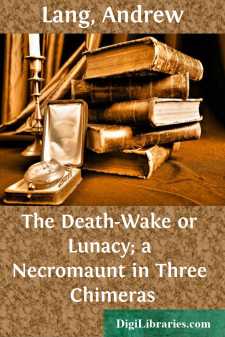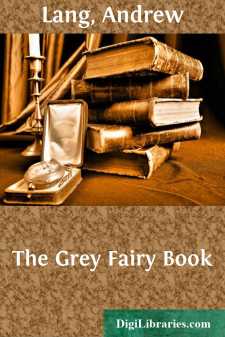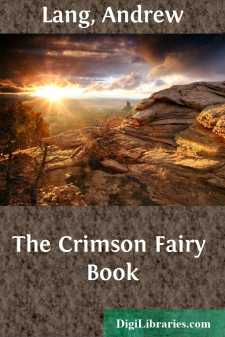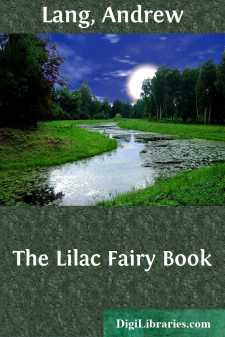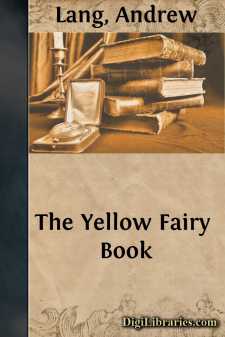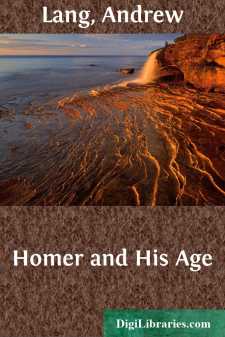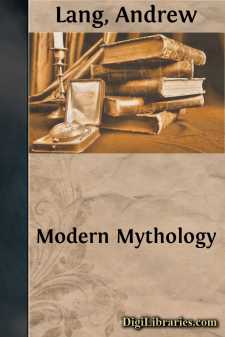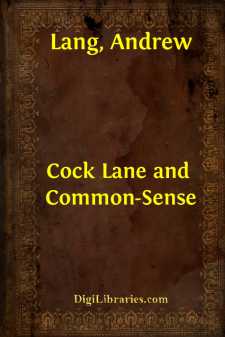Categories
- Antiques & Collectibles 13
- Architecture 36
- Art 48
- Bibles 22
- Biography & Autobiography 813
- Body, Mind & Spirit 142
- Business & Economics 28
- Children's Books 14
- Children's Fiction 11
- Computers 4
- Cooking 94
- Crafts & Hobbies 4
- Drama 346
- Education 46
- Family & Relationships 57
- Fiction 11829
- Games 19
- Gardening 17
- Health & Fitness 34
- History 1377
- House & Home 1
- Humor 147
- Juvenile Fiction 1873
- Juvenile Nonfiction 202
- Language Arts & Disciplines 88
- Law 16
- Literary Collections 686
- Literary Criticism 179
- Mathematics 13
- Medical 41
- Music 40
- Nature 179
- Non-Classifiable 1768
- Performing Arts 7
- Periodicals 1453
- Philosophy 64
- Photography 2
- Poetry 896
- Political Science 203
- Psychology 42
- Reference 154
- Religion 513
- Science 126
- Self-Help 84
- Social Science 81
- Sports & Recreation 34
- Study Aids 3
- Technology & Engineering 59
- Transportation 23
- Travel 463
- True Crime 29
The Death-Wake or Lunacy; a Necromaunt in Three Chimeras
by: Andrew Lang
Description:
Excerpt
INTRODUCTION
The extreme rarity of The Death-Wake is a reason for its republication, which may or may not be approved of by collectors. Of the original edition the Author says that more than seventy copies were sold in the first week of publication, but thereafter the publisher failed in business. Mr. Stoddart recovered the sheets of his poem, and his cook gradually, and perhaps not injudiciously, expended them for domestic purposes.
Apart from its rarity, The Death-Wake has an interest of its own for curious amateurs of poetry. The year of its composition (1830) was the great year of Romanticisme in France, the year of Hernani, and of Gautier's gilet rouge. In France it was a literary age given to mediæval extravagance, to the dagger and the bowl, the cloak and sword, the mad monk and the were-wolf; the age of Pétrus Borel and MacKeat, as well as of Dumas and Hugo. Now the official poetry of our country was untouched by and ignorant of the virtues and excesses of 1830. Wordsworth's bolt was practically shot; Sir Walter was ending his glorious career; Shelley and Byron and Keats were dead, and the annus mirabilis of Coleridge was long gone by. Three young poets of the English-speaking race were producing their volumes, destined at first to temporary neglect. The year 1830 was the year of Mr. Tennyson's Poems, chiefly Lyrical, his first book, not counting Poems by Two Brothers. It was also the year of Mr. Browning's Pauline (rarer even than The Death-Wake); and it was the year which followed the second, and perhaps the most characteristic, poetical venture of Edgar Allan Poe. In Mr. Tennyson's early lyrics, and in Mr. Poe's, any capable judge must have recognised new notes of romance. Their accents are fresh and strange, their imaginations dwell in untrodden regions. Untouched by the French romantic poets, they yet unconsciously reply to their notes, as if some influence in the mental air were at work on both sides of the Channel, on both sides of the Atlantic. Now, in my opinion, this indefinite influence was also making itself felt, faintly and dimly, in Scotland. The Death-Wake is the work of a lad who certainly had read Keats, Coleridge and Shelley, but who is no imitator of these great poets. He has, in a few passages, and at his best, an accent original, distinct, strangely musical, and really replete with promise. He has a fresh unborrowed melody and mastery of words, the first indispensable sign of a true poet. His rhymed heroic verse is no more the rhymed heroic verse of Endymion, than it is that of Mr. Pope, or of Mr. William Morris. He is a new master of the old instrument.
His mood is that of Scott when Scott was young, and was so anxious to possess a death's head and cross-bones. The malady is "most incident" to youth, but Mr. Stoddart wears his rue with a difference. The mad monkish lover of the dead nun Agathé has hit on precisely the sort of fantasy which was about to inspire Théophile Gautier's Comédie de la Mort, or the later author of Gaspard de la Nuit, or Edgar Poe. There is here no "criticism of life;" it is a criticism of strange death; and, so far, may recall Beddoes's Death's Jest-Book, unpublished, of course, in 1830. Naturally this kind of poetry is "useless," as Mr. Ruskin says about Coleridge, but, in its bizarre way, it may be beautiful.
The author, by a curious analogy with Théophile Gautier, was, in these days, a humourist as well as a poet. In the midst of his mad fancies and rare melodies he is laughing at himself, as Théophile mocked at Les Jeunes France. The psychological position is, therefore, one of the rarest. Mr. Stoddart was, first of all and before all, a hardy and enthusiastic angler....


